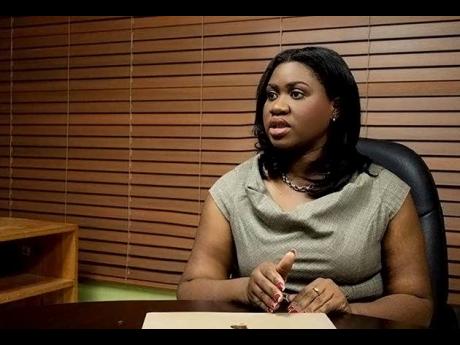'APOLOGY' CAUTION
Forced statements of regret have no basis in law, violate constitutional rights, warn attorney, JFJ
There are growing concerns about the recording and release of what appear to be coerced apologies from individuals accused of wrongdoing by the authorities, with critics suggesting that the practice may infringe upon their constitutional rights.
The latest public apology came last week from Calvin Campbell, the man believed to have been operating an overloaded vehicle while seated in the lap of a passenger.
Campbell apologised for the act, reportedly while in the custody of the Transport Authority, and was slapped with several charges.
But one attorney-at-law believes that such apologies are insincere and pointless and that the practice should be discontinued.
Additionally, he observed that many of these recordings occur while the accused is seated within the confines of an authority’s office, often with a demeanor suggesting that they have been directed to apologise before being permitted to leave. This raises questions about the motive of the recordings, which often end up going viral on social media.
“It [an apology] is not confined to anything under The Road Traffic Act or anything under The Transport Authority Act. There is, as far as I know, nothing under any act [in Jamaica] that can impose any [such] authority, whether it’s police [or] Transport Authority. Not even a judge can insist on anyone apologising as part of the penalty or sanction which they can impose,” the attorney, who requested anonymity, told The Gleaner on Sunday.
“Now, if someone wishes to voluntarily apologise for something that they have done – or that they ought to have done which wasn’t done – then they can do so, and in doing so, an authority such as the judge or [the] Transport Authority can take that into account in determining what the appropriate sanction ought to be,” he added.
The attorney emphasised that the whole concept of an apology is that it must be voluntary and sincere. Not seemingly forced.
“If someone has been forced to apologise, it defeats the entire purpose of it,” he said.
In a press release last Thursday, the Transport Authority said that Campbell was taken into custody after a joint operation with the Jamaica Constabulary Force (JCF) and charged with several offences, including dangerous driving.
It added that the vehicle was examined by the Island Traffic Authority and found in breach of the standard for public passenger vehicles (PPVs).
Transport Authority Managing Director Ralston Smith added that he was considering other actions against Campbell in accordance with the suspension and revocation policy.
The Gleaner’s attempts to speak with Merdina Callum of the Transport Authority’s Corporate Communications Department on the circumstances of the video were unsuccessful.
In the apology video, Campbell stated that he was with the Transport Authority and labelled the incident as “a careless and reckless act” before apologising with two PPV licence plates on a desk before him.
Less than a month ago, another motorist was also captured on footage apologising for his misdeeds in what appeared to be a police station.
The man had previously recorded himself hurling verbal abuse at two cops who had reportedly stopped him and requested a search.
The trend, however, began with Dayne Mitchell, who was forced to apologise in April 2020 after a video went viral in which he disrespected Prime Minister Andrew Holness while breaking a curfew order.
Since then, there have been several such videos.
When The Gleaner contacted Stephanie Lindsay, head of the Corporate Communications Unit of the JCF, she said the most recent issue with Campbell was not on the part of the JCF. She added that the police had previously addressed the matter of recording apologies.
In July 2021, the Police High Command admitted to several missteps after the arrest of a St Ann man, who had also disrespected Holness, and a subsequent apology video.
Back then, Lindsay agreed that the police were wrong to force the man to apologise and post the video on social media.
Jamaicans for Justice Executive Director Mickel Jackson also questioned the practice.
“Occasionally, one may see an offender utter an apology, voluntarily, in the hopes of reducing the punishment to be meted out to him or to express remorse for harm done. However, voluntary is key here, given the constitutional privilege against self-incrimination,” she told The Gleaner on Sunday.
“In other words, an accused person cannot be forced to make statements or admissions that could be self-incriminating. This principle of law is entrenched in Jamaica’s Charter of Rights and Freedoms. If a public statement was issued following any intimidation or force, it would be a clear breach of citizens’ constitutional rights,” added Jackson.
While not speaking to the latest incident, as there is no evidence or statement from the accused that he was forced to speak, Jackson issued a general reminder that in the execution of any lawful arrest, the authorities, especially the police, must respect the rights of citizens, such as cautioning the offender of his/her rights, particularly the right to remain silent.
“We remind that no questioning is to commence until and unless there is an attorney. Otherwise, the civil liberties of the accused or offender would have been undermined,” she said.

